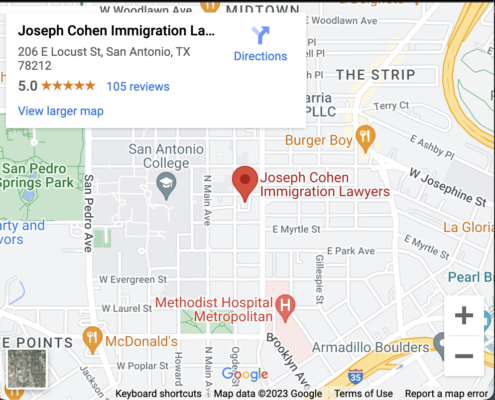How Deportation Officers Use Data to Track and Deport Individuals
A recent article by the New York Times suggests that immigration officers might be using Facebook, Instagram, and other social media services to watch undocumented immigrants, to watch immigrants in general, and as methods to catch and deport individuals. Alarmingly, these services might be used by immigration officers not just to track immigrants or people targeted for deportation, but also their American friends, family, and loved ones. If individuals are concerned about deportation or about surveillance by ICE and immigration officers, they should be very careful about what they say or post on social media. What they say and do can be used to track them and in some cases, what they say and post on social media can even be used as a tool to catch them. Alarmingly, anything posted on social media can remain there forever on the public record, available for immigration officers who might be trying to locate a target, or a build a case for deportation.
Because immigration officers cannot enter a home without a warrant, officers are using data, the internet, and social media to gain access where they otherwise would not have been able to do so. The New York Times reports that there are as many as 10.5 million undocumented immigrants in the U.S., while there are only about 6,100 immigration officers. With these limited numbers, ICE may be using big data to track potential targets. In some cases, officers have been able to use their tools to identify exactly where a person lived or resided and track their comings and goings so they could make an arrest.
Unfortunately, because of new tactics that ICE officers are using, the people who are most detectable by ICE officers, might ironically be the ones who are most likely trying to lead ordinary lives, who are not committing crimes. In fact, the Times reports that people who are being targeted are more likely to have driver’s licenses, more likely to pay their taxes, and more likely to have American-born children because these individuals might be the most traceable for officers.
When people are brought into detention, any phone calls they make and any connection they might make to the outside world might also be closely monitored. Anything a person says to immigration enforcement officers could also be used to gather additional data regarding others who might be targets. Based on recent reports, it appears that immigration officers now have more online tools than ever to target immigrants.
Was someone you love put into detention? Are you concerned that you might be under surveillance for deportation? Have questions about your rights? J. Joseph Cohen is a deportation lawyer in San Antonio, Texas that works with individuals who may be facing deportation and who may be concerned that they might be under surveillance.
Deportation and Social Media
Reports indicate that deportation officers have more tools than ever at their disposal. They can use a person’s public-facing social media accounts, posts, relationship statuses, and photos to track down an individual of interest. Officers may use social media in conjunction with other digital spying tools that allow them to locate addresses and individuals. What does this all mean for you if you are concerned for yourself or for a loved one? First of all, be aware that anything you post or say on social media could potentially be used in a deportation case or could potentially be used to locate you if you are undocumented. Reports indicate that not only might individuals applying to immigrate to the U.S. be monitored, but their friends and family might also be monitored as well. These reports indicate alarming things about American privacy, the risks of social media use, and other issues.
Individuals who are concerned that they might be under surveillance for deportation might be wise to limit their social media use to avoid tracking by ICE and other agencies. They might also want to make family, friends, and loved ones aware that they could also be subject to surveillance if a friend, loved one, or family member is a target. Secondly, other public data or records could also be used to track you. This includes vehicle registrations and tax documents. So, what can you do? J. Joseph Cohen is a deportation lawyer in San Antonio, Texas that can review your situation. Our attorney can either work to help you obtain legal status, either through adjustment of status, through seeking asylum, or through other means. Our lawyer can also help you understand your rights if you are facing deportation. Individuals may have the right to their day in court if they are facing deportation. J. Joseph Cohen is a deportation lawyer in San Antonio, Texas that may be able to help you. Contact him today or connect with USAttorneys.com to get matched with our attorney today to learn more.






